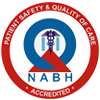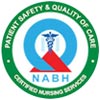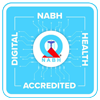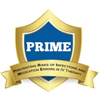
Types of nuclear cardiology tests
July 13, 2023
Nuclear cardiology tests measure the amount of blood flow to the heart muscle. Doctors use these tests to diagnose and assess coronary artery disease and cardiac ischemia (decreased blood flow and oxygen to the heart muscle). These tests are also called heart perfusion imaging tests or cardiac nuclear stress scans.Two Types of Nuclear Cardiology Tests
- Cardiac SPECT (Single Photon Emission/ Computed Tomography)
- Cardiac PET-CT (Positron Emission Tomography/ Computed Axial Tomography)
- Structural (or anatomical) images of your coronary arteries
- A calcium score, or a measurement of the calcium deposits in your coronary arteries
- A measurement of blood flow to your heart muscle tissue. This helps your doctor determine if you have disease in more than one of your coronary arteries (called multi-vessel disease)
Stress Test Component
Nuclear cardiology tests can be done under conditions of rest and stress. During the test, images are first taken of your heart while you are at a relaxed heart rate. Then, you exercise on a treadmill. If you cannot exercise, the technician can administer a medication that stresses your heart as if you were exercising. Measuring your heart function under stress helps your doctor assess blockages in the flow of blood to your heart. Doctors may also call this exam a nuclear stress test.Reasons for Nuclear Cardiology Tests
Nuclear cardiology tests are used for several purposes:- To evaluate blood supply to areas of damaged heart muscle after a heart attack
- To assess whether you have coronary artery disease and to measure how much your arteries are blocked
- To predict if you would benefit from additional procedures, such as cardiac catheterization or bypass surgery
- To measure the effectiveness of treatments such as cardiac catheterization or bypass surgery
- To determine impact of coronary calcium and coronary ischemia on your heart muscle
- To assess your need for treatment with medications and lifestyle changes versus medical procedures or surgeries
Recent Blogs
- Factors Contributing to Infertility
- Advantages of Robotic Surgery
- What is Robotic Surgery? Conditions Where Robotic Surgery Can Be Used
- Robotic Surgical Systems
- Types of Robotic Surgeries
- Causes of Male and Female Infertility
- What Is Male Infertility? Treatments For Male Infertility
- Superfoods That Can Boost Your Chances of IVF Success
- 5 Myths Over IVF
- What Are The Do’s And Don’ts For The Embryo Transfer Process?
- What are the different Cardiology Subspecialties?
- What is the difference between Invasive, Non Invasive and Interventional Cardiology?
- What is the difference between Cardiologist and Cardiothoracic Surgeon?
- What Are the Different Types of Heart Surgery and Their Purposes?
- Types of nuclear cardiology tests
2023
- December (6)
- November (8)
- Cardiac Catheterization: When Is It Required?
- Types Of Pediatric Cardiology Test
- Tips For Preventing Heart Problems In Kids
- Advances In The Diagnosis Of Congenital Heart Disease In Children
- Signs Of Heart Problems In Children
- What Is A Pediatric Cardiologist?
- Understanding Congenital Heart Defects In Children
- Pediatric Cardiac Surgery: Types And Considerations
- September (7)
- Lifestyle Changes To Prevent Diabetes
- New Innovative Advances In Diabetes Treatment
- The Link Between Obesity And Diabetes
- Monitoring Blood Sugar At Home
- The Importance Of Regular Diabetes Check-ups
- Understanding Diabetes: Types, Causes, Symptoms & Treatment
- Lower Blood Sugar Naturally: Managing Blood Sugar Through Diet
- August (8)
- What’s The Difference Between A Neurologist And Neurosurgeon?
- Dementia: Causes, Symptoms, Diagnosis And Treatment
- Seizures: Causes, Symptoms, Diagnosis And Treatment
- Epilepsy: Causes, Symptoms, Diagnosis And Treatment
- Is Autism A Neurological Disorder? Causes, Symptoms & Diagnosis
- Pediatric Neurology: Neurological Disorders In Pediatrics
- What Are The Most Common Neurological Disorders?
- Types Of Neurosurgery: Overview, Procedure & Costs
- July (11)
- Types of Cardiac Stents
- Types of nuclear cardiology tests
- What Are the Different Types of Heart Surgery and Their Purposes?
- What is the difference between Cardiologist and Cardiothoracic Surgeon?
- What is the difference between Invasive, Non Invasive and Interventional Cardiology?
- What are the different Cardiology Subspecialties?
- What Are The Do’s And Don’ts For The Embryo Transfer Process?
- 5 Myths Over IVF
- Superfoods That Can Boost Your Chances of IVF Success
- What Is Male Infertility? Treatments For Male Infertility
- Causes of Male and Female Infertility
- April (4)
- March (1)
-

Share with us
Click Here -

Organ Transplantation
Click Here
Copyrights © 2025 PSG Hospitals. All Rights Reserved.








